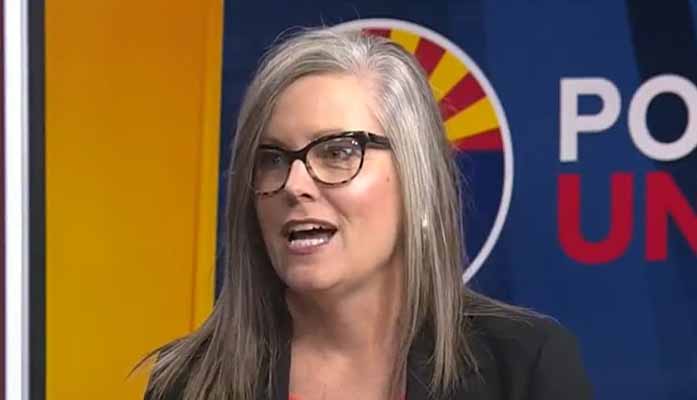
by Staff Reporter | Jan 30, 2026 | Education, News
By Staff Reporter |
The Arizona’s Empowerment Scholarship Account (ESA) program grew to over 100,000 enrollments this week.
As of Monday, the Arizona Department of Education (AZED) reported the ESA program had nearly 100,500 enrollees.
Superintendent Tom Horne said in a statement on Tuesday that the milestone represented “a remarkable endorsement” of school choice by Arizona parents. Horne offered an example of a typical scenario in which a family enrolls in the ESA program.
“Consider a family with three children. Two of the children are doing just fine in district schools. The third child’s needs are not being met. Now, the parents can find another school that meets the child’s needs,” said Horne. “I do not understand how anyone can say parents do not have a right to find a school that meets their child’s needs, unless people are so immersed in ideology that they lose sight of what is best for students.”
When Horne took office in 2023, the ESA program had about 11,000 students. That represents an average annual growth of nearly 30,000 students in the program for the past three years.
The latest enrollment data from AZED (2024-2025) reported nearly 1.1 million students across K-12. That’s about nine percent of the total student population.
AZED also reported the recovery of nearly $1.2 million in unallowable expenses through collections, repayments, or legal authority referrals. The program requires parents to document all purchases made, and any impermissible purchases result in a freeze on their accounts.
Parents do have recourse if they believe a mistake was made in the rejection of their expenditures. Horne reminded parents in his Tuesday statement that they are free to appeal rulings; to date, AZED has not lost an appeal.
“Some people have questioned my authority to insist that expenditures only be for valid educational purposes. I am not the final word. Parents have a right to appeal denial to an administrative law judge,” said Horne. “There have been 20 such appeals, and my authority to deny the expenditure was involved in everyone. We have 20 wins and zero losses. Administrative law judges have held unanimously that I do have that authority.”
Horne’s fellow executive branch leaders have expressed dissatisfaction with the continued growth of the ESA program.
In her State of the State Address earlier this month, Gov. Katie Hobbs accused the program of widespread waste, fraud, and abuse — a money pit funding many things other than “true educational purposes.” Hobbs recently proposed an income cap on ESA enrollment: anyone making over $250,000 a year would not qualify.
Horne’s response was a defense of the ESA program as a clear desire of Arizona voters. The ESA program was universalized through legislation passed in 2022 under Hobbs’ Republican predecessor, Gov. Doug Ducey.
“Arizona parents have made it clear they believe in being able to choose the best education for their children, whether districts, charters or Empowerment Scholarship Accounts,” said Horne. “By their loud display today, Democrats proved they want to take that power away from mothers and fathers who know their children’s needs best and return education to a government monopoly that parents do not want.”
AZ Free News is your #1 source for Arizona news and politics. You can send us news tips using this link.

by Staff Reporter | Jan 24, 2026 | Education, News
By Staff Reporter |
Republican state lawmakers want to improve accountability for school superintendents.
Several packages of bills released Thursday would reform superintendent contracts and duties, school board governments, and school district leasing and financial arrangements.
The bill package was a result of the Tolleson Union High School District (TUHSD) scandal that emerged last year. TUHSD entered a controversial $25 million leaseback agreement with a failing school district, which began without an appraisal and in which TUHSD Superintendent Jeremy Calles operated as a consultant for the deal.
The lawmaker behind the proposed reforms, State Representative Matt Gress, said in a press release that some districts have strayed from their intended purpose of educating students.
“Public schools exist to serve students, not administrators or board members who disregard their responsibilities,” said Gress. “This legislative package sets clear rules and ensures education dollars stay focused where they belong — on instruction and students.”
Gress also stated that the events at TUHSD made it clear that additional oversight was needed.
“When school leaders control large public budgets with little oversight, taxpayers and classrooms pay the price,” said Gress. “Arizona families deserve confidence that education dollars are managed responsibly and that those in authority are held to clear, enforceable standards.”
Arizona lawmakers unanimously approved an audit of the district.
TUHSD has delayed sending its financial transaction records despite repeated legislative requests. The district insisted the legislature pay over $26,000 for the records.
During a hearing by the Joint Legislative Audit Committee over the summer, TUHSD Superintendent Calles admitted to using his superintendent office to conduct the business of his private consulting firm. Several district staff or governing board members also work for Calles’ consulting business.
Calles is the highest-paid superintendent in the state.
This conflict between the district and legislature over the leaseback agreement and Calles’ conduct was a major influence on voters. They rejected two key funding measures proposed by TUHSD in this recent election.
The district faces a shortfall of $95 million at minimum, $200 million minimum more likely.
In 2024, TUHSD was busted for arranging “luxury vacations” for school board members and administrators.
The first bill package to reform superintendent contracts and duties contains House Bills 2387, 2386, 2381, 2382, 2377, and 2385. Reforms include limiting secondary employment for school district officials, raising standards for superintendents’ performance based-pay, limiting benefits and other perks given to superintendents like cell phone and vehicle allowances, and reducing the employment term for first-time superintendents to one year.
The second bill package to reform school governance contains House Bills 2318, 2380, and 2379. Reforms include establishing governing board member term limits, requiring convenient public venues for school board meetings, and requiring more training for school board members on governance, finances, policymaking, legal and ethical responsibilities, stakeholder and community engagement, and relevant professional development topics.
The third bill package to reform school district leasing and financial arrangements contains House Bills 2384, 2376, and 2383. Reforms include limiting allowed circumstances of leasing school property; excluding lease-purchase agreements for sites where charter or private schools operate; and limiting leases to 10 years without voter approval or 20 years with voter approval.
AZ Free News is your #1 source for Arizona news and politics. You can send us news tips using this link.

by Staff Reporter | Jan 21, 2026 | Education, News
By Staff Reporter |
Governor Katie Hobbs claimed the state’s school choice program lacks oversight.
The Arizona Department of Education (ADE) and experts dispute Hobbs’ claim.
The governor targeted the Empowerment Scholarship Account (ESA) Program during her state of the state speech last week. Hobbs advocated for the school choice program to be rolled back from universalization to its previous form that only accepted certain families with disability or military backgrounds.
“While other government entitlements have strict requirements and oversight, the ESA program continues to operate unchecked, squandering taxpayer dollars with no accountability,” said Hobbs. “It seems like every day, we learn about new shopping sprees happening at the expense of taxpayers…diamond jewelry, high-end clothing and furniture…who knows what taxpayers will be footing the bill for tomorrow?”
ADE publishes notice of its internal audits and has attempted to refer cases over to the attorney general’s office for prosecution — though Attorney General Kris Mayes has reportedly been unwilling to pursue prosecution of alleged fraud or abuse.
ADE bases its claims on existing requirements within the ESA Program: documenting all purchases made, and freezing accounts that make unauthorized expenditures. Parents must repay the program for unauthorized purchases.
In August, ADE reported it marked over $600,000 for collections “due to possible fraud or misuse.”
That’s less than one-tenth of one percent of total ESA spending, as noted by the Heritage Foundation in a report last August.
Comparatively, the estimated total fraud within average federal government obligations ranges from three to seven percent, according to a 2024 report by the Government Accountability Office.
Other examples of improper payment rates within government programs in Arizona have been issued recently. (The latest data aligns with the 2024 fiscal year in most cases).
The Department of Labor announced an estimated seven percent improper payment rate from July 2021 to July 2024.
For the 2024 fiscal year, the USDA reported that Arizona had a payment error rate of nearly nine percent.
The federal government even factors in improper payment rates to mitigate losses.
The Center for Medicaid projected an improper payment rate of over six percent for Arizona in 2024.
This indicates that fraud is an inevitable occurrence within any government program.
Unlike the reporting efforts of ADE regarding the ESA Program, the Arizona Auditor General presently finds that nearly 30 school districts are noncompliant based on financially related internal control deficiencies.
This slate of presently noncompliant districts represents over $1 billion in state spending. The entire ESA program spent under $900 million in the 2025 fiscal year and costs about $1 billion for the 2026 fiscal year.
Arizona school districts have accumulated nearly $8 billion in cash reserves, per the Heritage Foundation’s assessment of Arizona Superintendent Tom Horne’s annual report covering the 2023-2024 fiscal year.
Horne responded to Hobbs’ state of the state address with criticism over the governor’s open opposition to a program supported by a majority of voters. Arizona voters approved universalization of school choice back in 2022.
“Arizona parents have made it clear they believe in being able to choose the best education for their children, whether districts, charters or Empowerment Scholarship Accounts,” said Horne. “By their loud display today, Democrats proved they want to take that power away from mothers and fathers who know their children’s needs best and return education to a government monopoly that parents do not want.”
AZ Free News is your #1 source for Arizona news and politics. You can send us news tips using this link.

by Staff Reporter | Jan 18, 2026 | Education, News
By Staff Reporter |
Psychology was a top major for Arizona college students this past year, per a new study.
This determination was pulled from data gathered concerning college major-related queries in Arizona and organized by monthly search volumes.
The top five college majors based on monthly searches were psychology, then music, then computer science, then communications, and then business administration.
The subsequent most-popular college majors searched were criminal justice, then accounting, then business management, then nursing, and finally social work.
The data was published by Flipsnack, a company that creates flipbooks.
Psychology ranks near the bottom for median wage early career and middling for median wage mid-career, per the New York Federal Reserve Bank’s Labor Market for Recent College Graduates.
The top but lesser popular college majors fared far better in terms of salary potential. Computer science sat at the very top, followed by a slew of engineering specialities: computer engineering, chemical engineering, electrical engineering, industrial engineering, mechanical engineering, and civil engineering. Just above miscellaneous engineering and general engineering sat physics.
Psychology’s median early career income potential was around $35,000 to $45,000 less than computer science, the major with the highest labor market outcome for early career wage. Psychology was projected to earn around $55,000 less for mid-career median wage than several of the engineering majors.
Reporting data from the state’s three public universities aligns with these findings. Psychology was a top degree for both Arizona State University (ASU), University of Arizona (UA), and Northern Arizona University (NAU), according to Niche.
ASU’s top five degrees based on the number of graduates in recent years, in order, included business and business support services, psychology, biology, computer science, and marketing.
Per their latest data published in 2024, the top majors for ASU Online were information technology, psychology, liberal studies, business administration, biological sciences, electrical engineering, software engineering, English, criminology and criminal justice, and nursing.
ASU offers over 400 undergraduate programs. They also boast an 89 percent success rate of graduates securing employment or a job offer within 90 days of graduation, with a median full-time salary of $55,000.
NAU’s top degrees include psychology, liberal arts and humanities, nursing, elementary education, and criminology.
NAU has over 150 undergraduate programs. The university reported a full-time employment rate of 45 percent, and 35 percent seeking employment. The median salary for these graduates sits at around $50,000.
UA’s top five degrees based on the number of graduates in recent years, in order, were psychology, liberal arts and humanities, intelligence, physiology and pathology, and nursing.
Likewise, UA has over 150 undergraduate programs.
UA reported a full-time employment rate of 56 percent, with a median full-time salary of $60,000. 25 percent reported continuing education or seeking continuing education, 15 percent reported seeking employment, and two percent reported part-time employment.
Grand Canyon University (GCU), a private university that consistently ranks up there with the state’s three public universities, didn’t report psychology as a popular pick among its graduating students. GCU’s most popular majors were nursing, business, human services, elementary education, and special education and teaching.
Psychiatrist and mental health services fell just outside the scope of top-five popularity for GCU graduating students.
GCU reported a 96 percent employment rate post-graduation, with a median salary of $62,000 annually.
AZ Free News is your #1 source for Arizona news and politics. You can send us news tips using this link.

by Matthew Holloway | Jan 16, 2026 | Education, News
By Matthew Holloway |
An Arizona State University faculty member, who also serves as an associate director, was captured on video acknowledging that diversity, equity, and inclusion (DEI) programming continues at ASU despite Executive Orders and U.S. Department of Education (DOE) policies directing the elimination of the programs.
In footage from Accuracy in Media (AIM) circulating online, an ASU official identified as Rebecca Loftus, Associate Teaching Professor and Associate Director of the School of Criminology & Criminal Justice, is shown discussing how DEI efforts persist at the university, saying the programming is now “just not as broadcast as it was before,” according to posts and videos shared on social media platforms.
In January 2025, the DOE announced it was dismantling DEI-related offices, removing DEI references from public-facing materials, and directing staff to eliminate related programs as part of a department-wide policy shift under the Trump administration. The department said the move was intended to end what it described as discriminatory or non-merit-based practices tied to DEI frameworks. It warned that institutions continuing such efforts could face scrutiny over federal funding.
The video, originally posted to YouTube, was later shared on X by Corey A. DeAngelis and circulated more broadly as Instagram Reels and X posts. In the footage, Loftus can be heard making statements that ASU’s diversity initiatives are still in effect, albeit with less public emphasis than in earlier years.
According to AIM, Loftus, speaking with an undercover investigator, was recorded stating that, “Most of our faculty do tend to be a little more on the liberal side. You have to be careful with the language that you use. We’re doing pretty much what we were doing before.”
The outlet reported that she went on to describe a body known as “the idea office,” an internal group responsible for “designing” criminology classes for a “majority-minority student body,” with AIM characterizing such groups as “how DEI-related instruction is being concealed through new internal structures.”
Loftus is later seen telling the investigator: “You’re not going to find very many programs that are going to broadcast it as before because the federal funding for universities, especially state-run universities like ASU… If you have federal funds that are withheld, it really makes a big impact.” She reportedly added that entire classes are still being devoted to race, ethnicity, and gender, and said that ASU has been bringing in outside figures to present these classes.
In a later clip, when confronted about the undercover video, she can be seen telling Adam Guillette, President of Accuracy in Media, that she has “no idea” what he’s talking about and urged him to “talk to our Director” before requesting he leave her office.
ASU’s use of diversity training and DEI programming has been the subject of a legal challenge in recent years.
In March 2024, the Goldwater Institute filed a lawsuit on behalf of an ASU faculty member challenging ASU’s “Inclusive Communities” training requirement as violating Arizona law prohibiting certain diversity trainings funded with public money. That lawsuit, Anderson v. Arizona Board of Regents, remains active in the state court system.
The Goldwater Institute’s online materials describe the training as covering systemic bias, privilege, and related concepts.
At the time of this report, ASU administrators had not issued a public response to the video clips widely circulated on social media, nor had the university clarified whether the recording was conducted with consent or in a sanctioned setting.
The footage has been reposted and commented on by multiple users, including calls for questions about the university’s DEI direction. One user suggested contacting the ASU Board of Trustees regarding the issue; however, no official response from the board has been posted publicly as of this report.
Matthew Holloway is a senior reporter for AZ Free News. Follow him on X for his latest stories, or email tips to Matthew@azfreenews.com.

by Ethan Faverino | Jan 13, 2026 | Education, News
By Ethan Faverino |
Grand Canyon University (GCU) announced it will continue its historic tuition freeze on the Phoenix campus for the 18th consecutive year, maintaining the same rate through the 2026-27 academic year.
The private Christian university will keep campus tuition at $16,500 (before institutional aid) for the upcoming year—the same amount that has been in place since the freeze began in 2008-09.
This longstanding commitment provides students and families with rare cost predictability amid widespread concerns about escalating college expenses and the long-term value of a degree.
In the 2024-25 academic year, more than 92% of GCU’s traditional students received institutional scholarships totaling $181 million, reducing the average tuition cost to approximately $8,900. This figure is comparable to many public universities and significantly lower than most other private institutions.
National data from the College Board’s Trends in College Pricing and Student Aid Report showed the significance of GCU’s decision. Since 2008-09, average in-state tuition and fees at four-year public colleges have increased 81% (from $6,585 to $11,950), while four-year private institutions have seen costs rise 78% (from $25,143 to $45,000).
GCU’s housing costs also remain well below national averages. The university’s estimated average room and board cost for 2025-26 is $10,658, compared to $13,900 at four-year public colleges and $15,920 at four-year private institutions.
This affordability is notable given that nearly all GCU’s modern residence halls have been constructed in the past 15 years, with approximately 64% of rooms being single occupancy.
Since the tuition freeze began in 2008, the university’s traditional campus enrollment has grown dramatically from fewer than 1,000 students to around 25,000, while the campus itself has expanded to 300 acres.
During this period, the university has invested more than $1.8 billion in new degree programs, classrooms, laboratories, research spaces, residence halls, and advanced technologies.
“When you look at the rising costs in higher education, it’s not surprising that families are questioning the value of a college education,” said GCU President Brian Mueller. “By freezing our tuition for nearly two decades, we have been able to build trust and predictability without compromising our academics. Our campus has grown exponentially, and we are blessed that it has occurred without passing those costs on to students and without requiring state tax subsidies that public universities receive.”
Mueller emphasized the broader impact of the university’s affordability strategy: “Freezing tuition costs is one way that we ensure higher education is affordable to all socioeconomic classes. That increases diversity on college campuses (over 40% of GCU’s ground campus enrollment are students of color), makes higher education more accessible to first-generation college students, and helps prevent students from taking on large amounts of debt.”
Ethan Faverino is a reporter for AZ Free News. You can send him news tips using this link.






